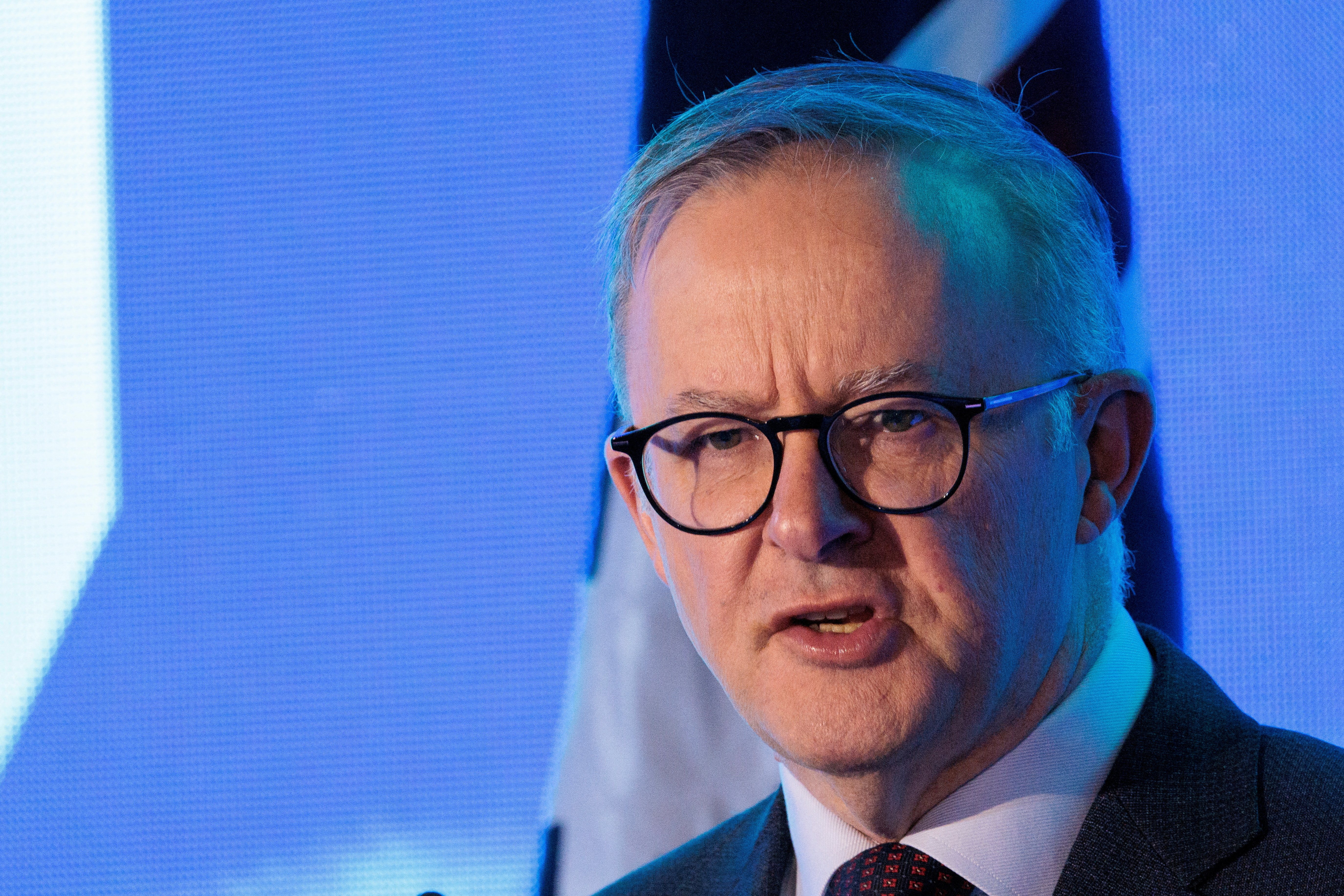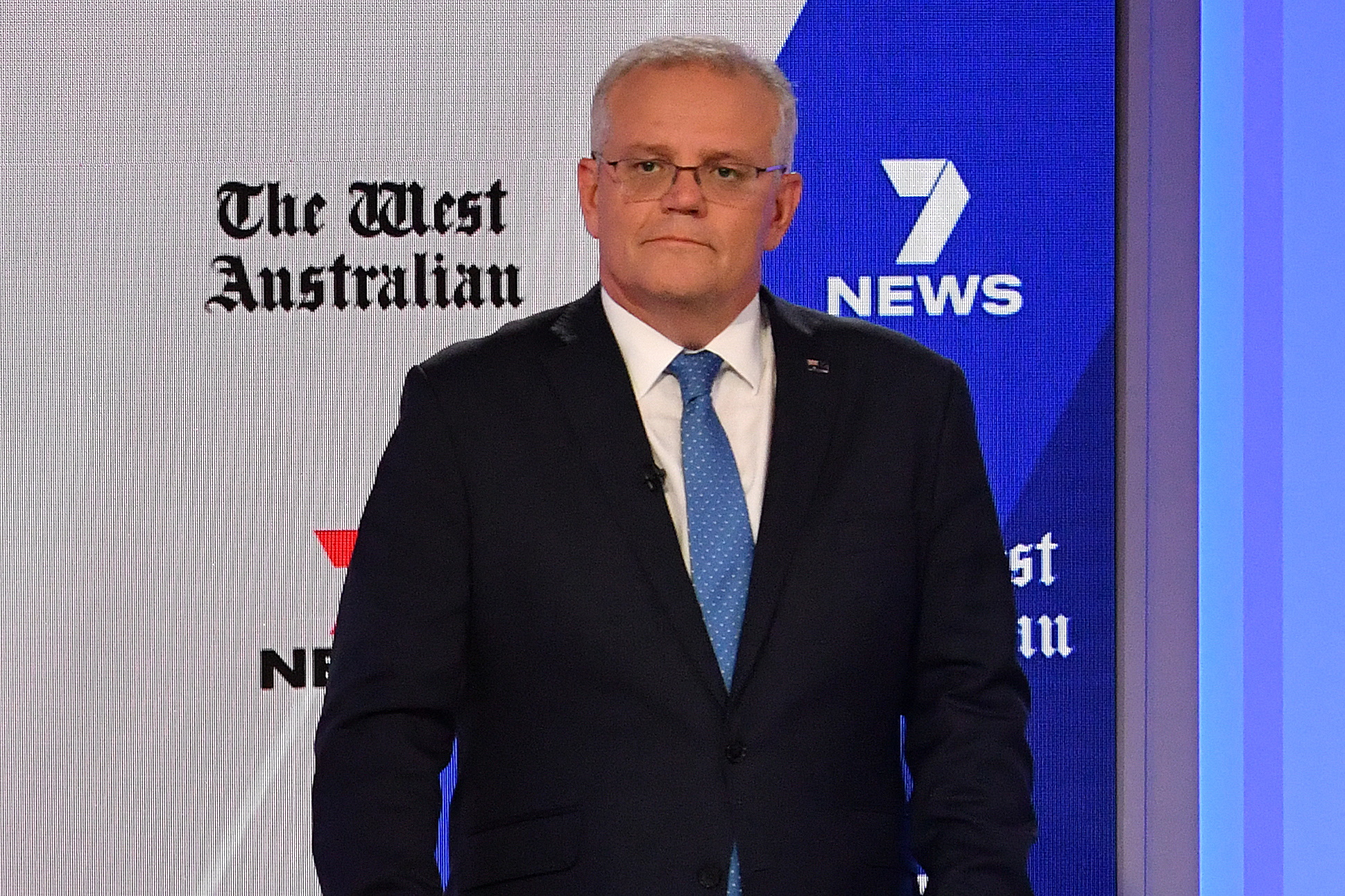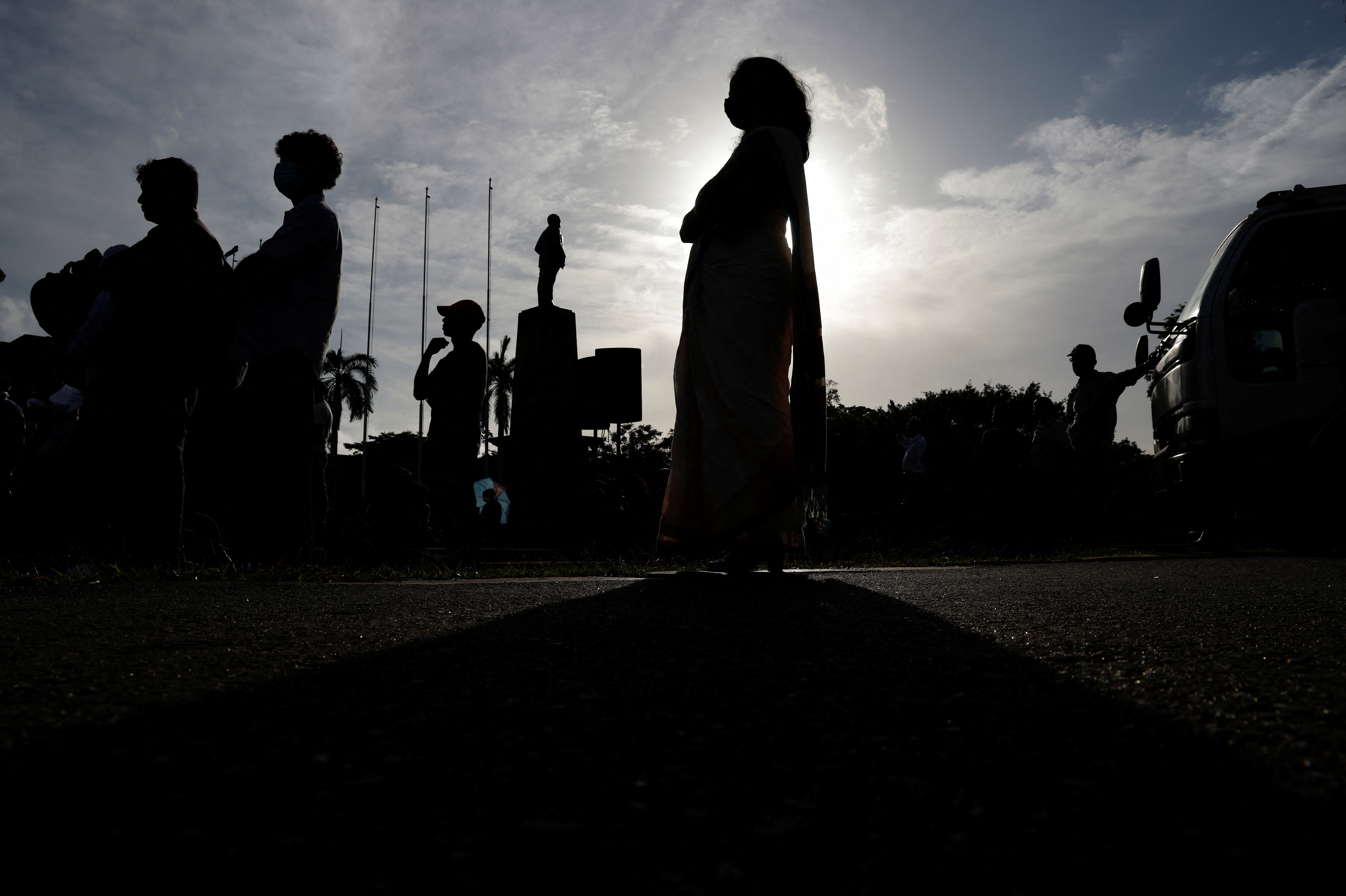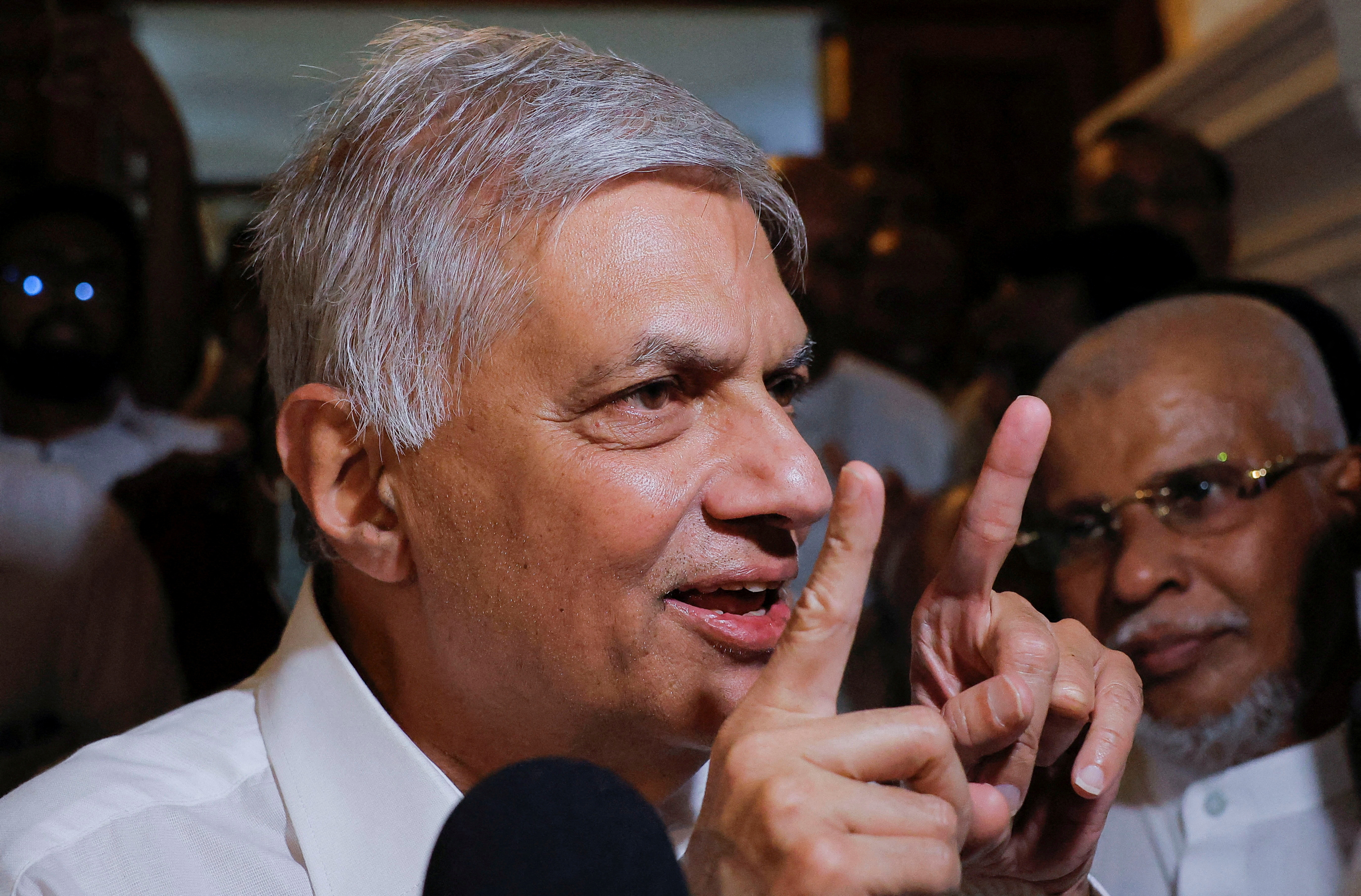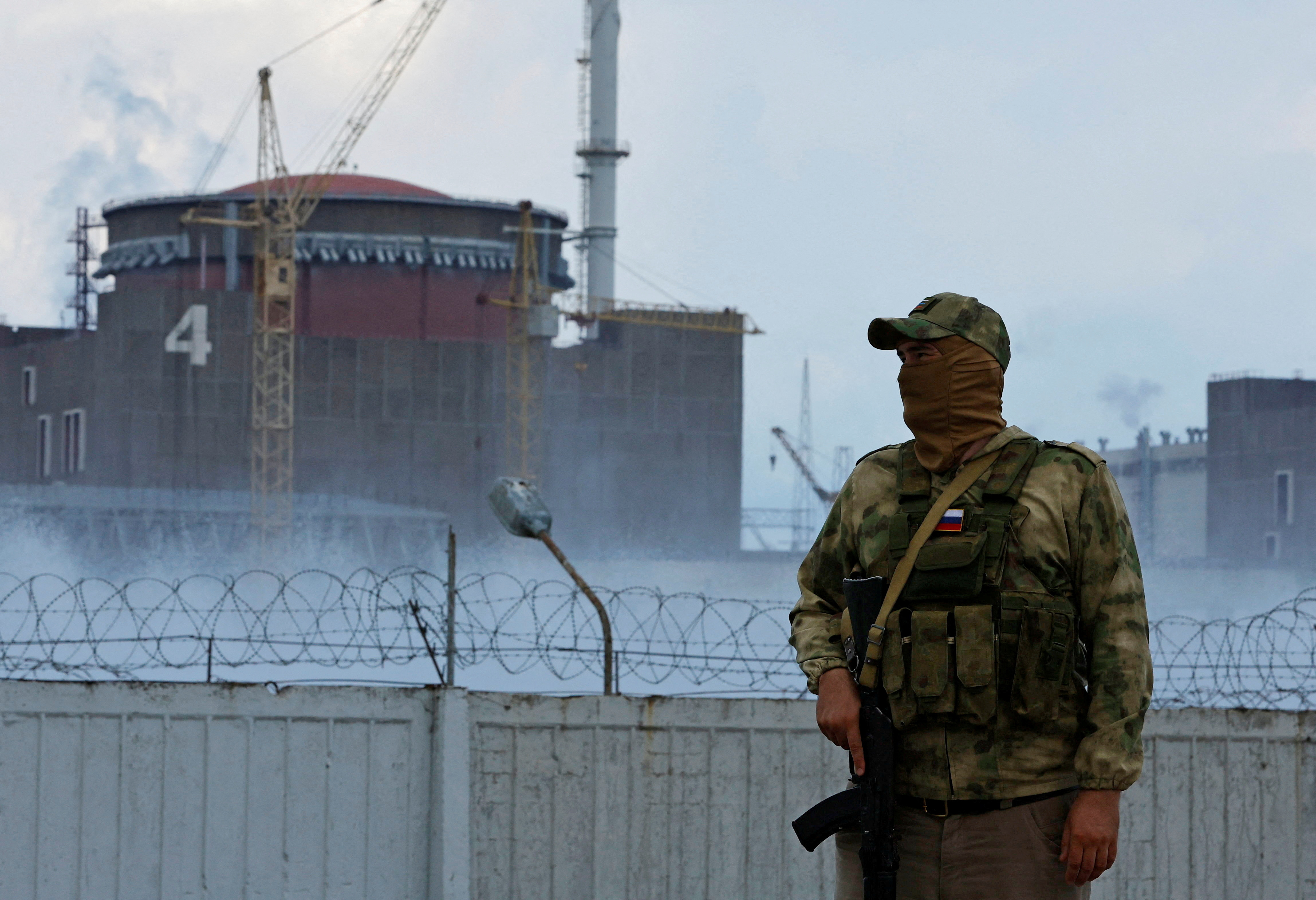
A serviceman with a Russian flag on his uniform stands guard near the Zaporizhzhia Nuclear Power Plant in the course of Ukraine-Russia conflict outside the Russian-controlled city of Enerhodar in the Zaporizhzhia region, Ukraine August 4, 2022.
By Michelle Nichols
NEW YORK, Aug 15 (Reuters) - The United Nations has the logistics and security capacity to support a visit by International Atomic Energy Agency (IAEA) inspectors to Ukraine's Zaporizhzhia Nuclear Power Plant, a spokesman said, but a Russia diplomat imposed conditions, saying routing any mission through Ukraine's capital was too dangerous.
U.N. spokesman Stephane Dujarric, speaking on Monday, also said: "The U.N. Secretariat has no authority to block or cancel any IAEA activities."
Dujarric was responding to an accusation by Russia that U.N. security had blocked a visit by IAEA inspectors to Europe's largest nuclear power plant, which Russia seized in March following its invasion of Ukraine on Feb. 24.
He said that "in close contact with the IAEA, the U.N. Secretariat has assessed that it has in Ukraine the logistics and security capacity to be able to support any IAEA mission to the Zaporizhzhia Nuclear Power Plant from Kyiv."
But he said both Russia and Ukraine have to agree. Both countries have said they want IAEA inspectors to visit. IAEA chief Rafael Grossi has said he was ready to lead a mission and called on Russia and Ukraine to cooperate.
In Moscow, Russian news agencies quoted a senior diplomat as saying that no such mission could pass through Kyiv, the Ukrainian capital, as proposed by the United Nations.
"Imagine what it means to pass through Kyiv -- it means they get to the nuclear plant through the front line," RIA news agency quoted Igor Vishnevetsky, deputy head of the foreign ministry's nuclear proliferation and arms control department, as telling journalists.
"This is a huge risk, given that Ukraine's armed forces are not all made up in the same way," he was quoted as saying.
Russia describes its actions in Ukraine as a "special military operation" and accuses Kyiv's military -- and much of its political structures -- as being beholden to nationalists and "Nazis."
Tass news agency quoted Vishnevetsky as saying that any such mission had no mandate to address the "demilitarization" of the plant as demanded by Kyiv as it could only deal with "fulfillment of IAEA guarantees."
U.N. Secretary-General Antonio Guterres on Thursday called for an end to military activity around the Zaporizhzhia nuclear power complex as Moscow and Kyiv blamed each other for shelling of the area. read more
Guterres spoke with Russian Defense Minister Sergei Shoigu on Monday about the conditions for the safe operations of the Zaporizhzhia, the United Nations and Russia said.
Russia: Too dangerous for IAEA to go
through Kyiv to visit Zaporizhzhia
nuclear plant

(Reuters) - Any mission undertaken by the U.N.'s nuclear agency to inspect Ukraine's Zaporizhzhia plant cannot pass through the capital Kyiv as it is too dangerous, a senior Russian diplomat was quoted by Russian news agencies as saying on Tuesday.
"Imagine what it means to pass through Kyiv -- it means they get to the nuclear plant through the front line," RIA news agency quoted Igor Vishnevetsky, deputy head of the foreign ministry's nuclear proliferation and arms control department as telling journalists.
"This is a huge risk, given that Ukraine's armed forces are not all made up in the same way."
U.N. spokesperson Stephane Dujarric said on Monday in New York that the U.N. Secretary had assessed that it had the logistics and security capacity to be able to support any IAEA mission to the Russian-controlled Zaporizhzhia plant from Kyiv.
Tass news agency quoted Vishnevetsky as saying that any such mission had no mandate to address the "demilitarisation" of the plant as demanded by Kyiv as it could only deal with "fulfillment of IAEA guarantees".
